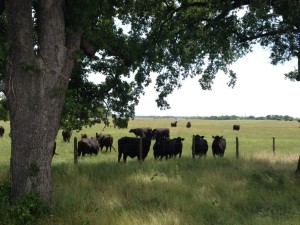The Amarillo Court of Appeals recently considered a case involving an alleged breach of a grazing lease. Miller v. Durham illustrates the importance of lease agreements addressing what will happen in the event of drought, fire, or other natural disaster that damages the forage available for livestock under the lease. [Read full opinion here.]
Background
Mr. Durham owned ranchland in Hale and Lubbock counties. In January 2010, the Millers entered into a grazing lease agreement with Mr. Durham to lease 889 acres that was to last from January 1, 2010, to December 31, 2014. The lease agreement called for $25,250 payment per year and required the Millers to make quarterly payments to Mr. Durham each January, April, July and October of the lease duration. Importantly, the lease contained no provision regarding what would happen in the event of a drought of other natural disaster (often referred to as a “force majeure clause.”)
The Millers began running cattle on the land in May 2010. Shortly thereafter, a severe drought began across Texas, including Hale and Lubbock counties. The parties had differing opinions of how the land should be managed during the drought to ensure viability of the grass for future use. At one point during the lease, Mr. Durham entered the property and opened an internal gate, allowing the Millers cattle to move from one part of the leased land to another.
Shortly thereafter, a discussion occurred between Mr. Durham and the Millers about the removal of the cattle. Mr. Durham claims he merely requested that the Millers remove all cattle from the property and that the Millers acquiesced to this request. The Millers claim that they were ordered to remove the cattle from the property. The Millers did remove their cattle and cease making rental payments to Mr. Durham beginning on January 1, 2012.
Lawsuit
Mr. Durham sued the Millers for breach of contract due to their failure to make the required rental payments. The Millers filed a counterclaim against Mr. Durham claiming that he breached the lease by ordering the cattle removed in 2011.
The jury found in favor of Mr. Durham, awarding $75,450 along with pre and post-judgment interest and attorney’s fees. Specifically, the jury found that Mr. Durham performed all of his obligations pursuant to the lease through January 1, 2012. On the other hand, the jury found the Millers failure to make the quarterly payment due on January 1, 2012 and all subsequent payments constituted a breach of the lease agreement. The court of appeals affirmed the jury verdict finding that sufficient evidence existed for the jury to believe that Mr. Durham merely requested the cattle be removed to which the Millers acquiesced and, therefore, he did not breach the lease agreement.
Lesson Learned
All parties entering into a grazing lease agreement should ensure that the lease contains a provision addressing what will happen in the event that a natural disaster such as drought or fire damages the amount of forage available. A lease agreement should also address what rights each party has in the event of this type of disaster. The grazing lease checklist I published includes the following advice for folks entering into grazing leases:
Consider how disasters such as drought of fire might impact the landlord/lessee relationship. In the event that all or some of the grazing land is destroyed, how will a determination regarding the lease be made? Who decides if it is necessary to lower the number of livestock permitted on the property, or whether it is necessary to terminate the lease altogether? Parties may want to agree on a neutral third party, such as a county Extension agent or another livestock operator in the area, to help with this determination. In the event that the lease is limited or cancelled, state whether a refund of any prepaid rent will be made.
Had the grazing lease between the Millers and Mr. Durham addressed how drought issues would be handled before the problem occurred, the parties may have been able to avoid the dispute and years of costly litigation.












